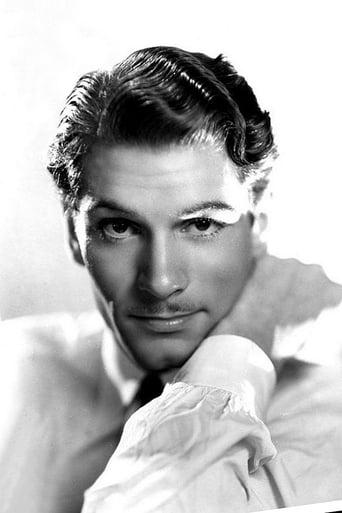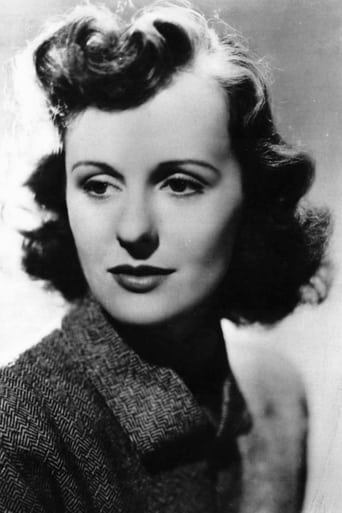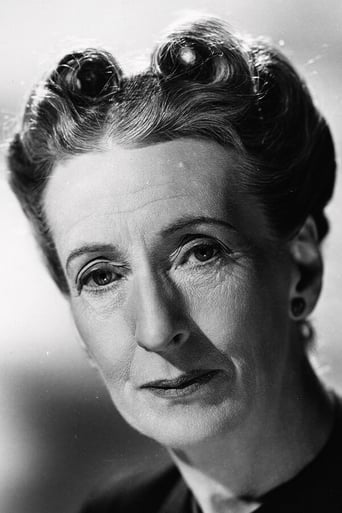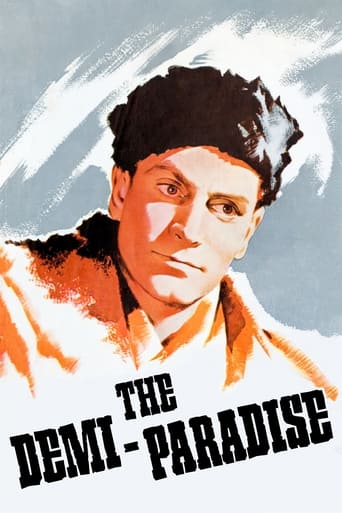
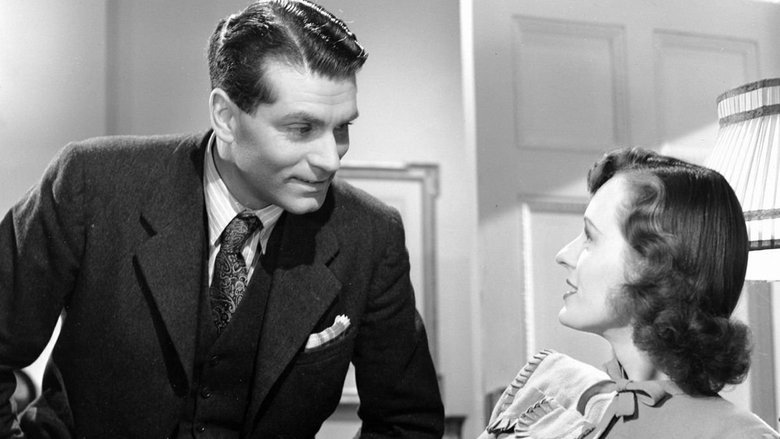
The Demi-Paradise (1943)
Ivan Kouznetsoff, a Russian engineer, recounts during World War II his stay in England prior to the war working on a new propeller for ice-breaking ships. Naïve about British people and convinced by hearsay that they are shallow and hypocritical, Ivan is both bemused and amused by them. He is blunt in his opinions about Britons and at first this puts off his hosts, including the lovely Ann Tisdall, whose grandfather runs the shipbuilding firm that will make use of Ivan's propeller. The longer Ivan stays, however, the more he comes to understand the humor, warmth, strength, and conviction of the British people, and the more they come to see him as a friend rather than merely a suspicious Russian. As a romantic bond grows between Ivan and Ann, a cultural bond begins to grow as well, particularly as the war begins and Russia is attacked by Germany.
Watch Trailer
Cast


Reviews
What was a spoof of the paranoia of the Commie scare following World War II now seems somewhat hypocritical considering that for the most part, the Russians were our allies during the war. Films like "Song of Russia" and "Tender Comrade" were considered communist propaganda after the war ended, but during their initial releases, film audiences weren't any the wiser to the alleged hidden meanings and attempted manipulations of the politically vulnerable to switch their allegiances to the communist party.Somehow missing on the list of alleged Communist propaganda films made during the war is this British drama which focuses on a Russian engineer (Laurence Olivier) who comes to a small town in England to get a ship built with the help of the local factory. Of course, there's the initial insecurities over what side the Russians appear on in the growing conflict, the differences in culture, and Olivier's feeling that he's automatically an outsider. He befriends a beautiful British girl (Penelope Dudley-Ward) who pretty much takes him under her wing and shows him that the British aren't as priggish or humorless as he was taught to believe. In fact, the whole town comes to take him into their hearts, their eccentricities proving to him that they are indeed people filled with heart, humor and passion.There are speeches about how the British for the most part try to avoid conflict, how their on the surface stiff upper lip is really a facade they use as an inside joke against the world, and how as a community they do come together to fight for the basic rights of mankind. Olivier makes a speech towards the end of the film about how it takes a nation of humor (especially the ability to laugh at one's self) and compassion towards humanity will give the allies the side of right in the fight against an enemy who takes itself way too seriously. He isn't being facetious, pretentious and patronizing when he says this about members of a community who has adopted his Russian home town as their "sister city" but sincere and genuinely grateful for the way in which their friendship became stronger.The wonderful Margaret Rutherford is delightful as the director of a local pageant, and it is clear why the world took her to their hearts as the British Marie Dressler. Mentions of Queen Elizabeth (the Queen mother, not the current queen) reminds the audience that this is a part of our recent history, even though it seems like so much time has gone by. It also serves an important reminder that people are representatives of themselves as individuals, not just the product of a country or nationality and that judgments are based upon people's character, not a different way of growing up or lifestyle.
Laurence Olivier is a Russian who comes to the U.K. to work on a propeller in "The Demi-Paradise," a 1943 propaganda film directed by Anthony Asquith. Since the Russians became allies in World War II, much was done in film so that they would be seen in a favorable light. At first, Ivan, the Olivier character, regards everyone with suspicion, having heard all sorts of clichés about the English. But with time, they win him over, helped by the daughter (Penelope Ward) of the man in charge of building the ship that will house the propeller.Olivier's accent is good, but as someone pointed out, the slow way he speaks makes him seem dumb, which, as an engineer, he isn't. On the other hand, it's probably realistic, since it would be a second language.There are a few funny scenes, and the film is infected with a lot of warmth. It's good, but not great.
Almost two hours long, D.P.starts out in Russia, with some British travelers meeting with a Russian; we quickly flash back to when one of the Russians had traveled to London on business. Laurence Olivier is Ivan Kouznetskoff, who recounts his experience in Britain many years ago, both pleasant and unpleasant. British "Ann" ( Penelope Dudley ) is his new love interest, and that is an on again/off again relationship. Viewers will recognize Margaret Rutherford (plays Rowena Ventnor) - Rutherford played Agatha Christie's Jane Marple during the 1960s. Olivier's accent is iffy, but they DO capture the proud complaining that is prevalent in some Russians (as well as some Americans, some Britains...) Of course, the story takes place deep in the middle of world war II now, and also about the time of the Haye's movie production period back in the U.S., so I'm guessing some parts of the original story were left out of the film. Writer Anatole de Grunwald had actually fled Russia as a young boy with his family during the Russian Revolution, so its interesting that his main character would extol the virtues of the common worker society. Entertaining two hours, but Ivan is so cold throughout, that we don't get too drawn into the story. The second half is more about their relationship, and less about comparing Great Britain to Russia, and what a snob Ivan is.
In between making That Hamilton Woman and Henry V both of which could be argued were better contributions to the propaganda front of the British war effort, Laurence Olivier made this film about a Soviet engineer who designs a new type ship propeller and the government contracts with a British firm to build and install it on a ship. This is taking place in 1939 before any general war breaks out in Europe.Two things I found interesting about The Demi-Paradise. Firstly the fact that the proper name of the country, the Union of Soviet Socialist Republics, or USSR, or the Soviet Union is never used once in the film. Olivier always refers to his country as Russia, as do the others in the cast. Secondly, you never hear one word about the German-Soviet non- aggression pact. I suppose that might have been better than the clumsy explanations given in the American film Mission to Moscow.But whether Czarist or Marxist it's a different world that Olivier steps into when he arrives in the United Kingdom. He's pretty suspicious at first, but his interaction with British people in all walks of life gradually wins him over. Not the least of which is pretty Penelope Ward who's conducting a campaign of her own as far as Olivier is concerned.Hardly the greatest film Olivier ever did. Then again he nor anyone else managed to get themselves blacklisted over it, did they?


